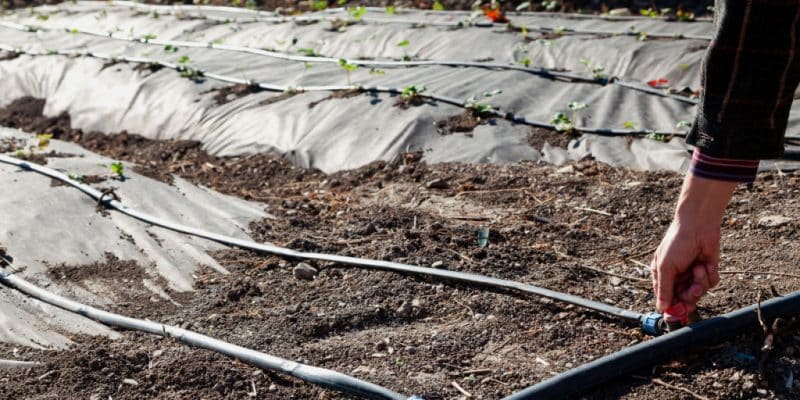Since March 31, 2023, the use of drinking water is prohibited in agriculture, for watering green spaces, cleaning streets and public spaces to reduce pressure on dams. This decision of the Tunisian Ministry of Agriculture, Water Resources and Fisheries will be applied for six months.
In Tunisia, the drought imposes more restrictions in the use of water. Since March 31, 2023, farmers in this North African country are prohibited from using water for consumption to irrigate their crops. This measure taken by the Tunisian Ministry of Agriculture, Water Resources and Fisheries aims to preserve the reserves of dams, with levels of filling now worrying due to drought.
The agricultural sector consumes more than 80% of Tunisia’s water reserves, according to the United Nations Food and Agriculture Organization (FAO). Compliance with these regulations will make enough water available to meet the needs of the population.
Penalties for violations
The restrictions on the use of drinking water recently announced by the Tunisian Ministry of Agriculture will be effective until the end of September 2023. They also apply to activities such as watering green areas, cleaning streets and public spaces. The Tunisian authorities have stressed that individuals are not exempt from this regulation.
Read Also – AFRICA: Resource and source of life, water at the heart of sustainable development
The Tunisian Ministry of Agriculture has designated the National Company of exploitation and distribution of water (SONEDE) to ensure compliance with this new measure in the water sector. Thus, the public company will be able without notice to stop the supply of drinking water to violators, then initiate legal proceedings that would lead to imprisonment of six days to nine months. The Tunisian government also foresees fines ranging from 60 to 1,000 Tunisian dinars, or 18 to 300 euros.
The impact on agricultural production
While the decision to ban the use of drinking water in other sectors of activity will reduce the pressure on Tunisia’s 36 dams, with a total capacity of 2.988 million m3 according to the National Observatory of Agriculture (ONAGRI), this measure will have important consequences on agriculture, which represents about 10% of the country’s gross domestic product (GDP). Among these consequences, the reduction of agricultural production, increased dependence on imports to avoid the food crisis. “Tunisia’s grain harvest will be disastrous. With the drought, production is expected to be between 200 and 250,000 tons this year, compared to 750,000 tons in 2022,” said Mohamed Rjaibia, a senior official of the farmers’ union to the Reuters news agency.
The lack of water for watering green spaces will accelerate the drying up of lawns, impacting the beauty of urban landscapes, which are necessary for the development of the population. Urban sanitation will also suffer. This essential service depends largely on water.
Inès Magoum







